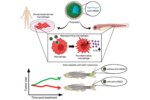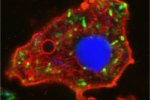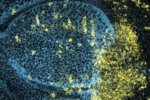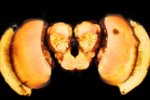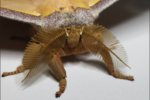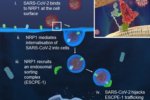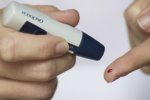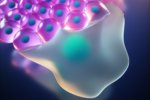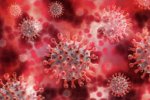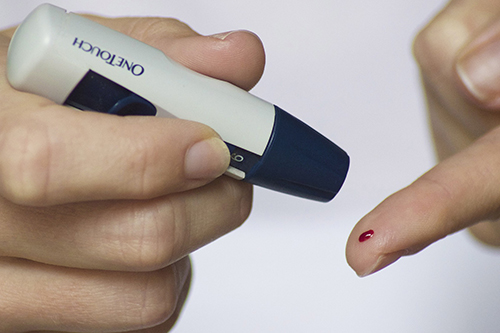News in 2022
- Pocket feature shared by deadly coronaviruses could lead to pan-coronavirus antiviral treatment 23 November 2022 Scientists have discovered why some coronaviruses are more likely to cause severe disease, which has remained a mystery, until now. Researchers of the University of Bristol-led study, published in Science Advances today [23 November], say their findings could lead to the development of a pan-coronavirus treatment to defeat all coronaviruses—from the 2002 SARS-CoV outbreak to Omicron, the current variant of SARS-CoV-2, as well as dangerous variants that may emerge in future.
- Patient-specific cancer tumours replicated in 3D bioprinting advance 2 November 2022 Bowel cancer patients could in future benefit from a new 3D bioprinting technology which would use their own cells to replicate the complex cellular environment of solid tumours in 3D models. The University of Bristol-led advance, published in Biofabrication, would allow clinicians to treat the models, known as spheroids, with chemotherapy drugs and radiation to help them understand an individual patient’s resistance to therapies.
- Reprogramming of immune cells shown to fight off melanoma 31 October 2022 A new way of reprogramming our immune cells to shrink or kill off cancer cells has been shown to work in the otherwise hard to treat and devastating skin cancer, melanoma. The University of Bristol-led discovery, published in Advanced Science today [31 October], demonstrates a new way to clear early stage pre-cancerous and even late-stage tumour cells.
- Pioneering research using bacteria brings scientists a step closer to creating artificial cells with lifelike functionality 14 September 2022 Scientists have harnessed the potential of bacteria to help build advanced synthetic cells which mimic real life functionality.
- Taste sensors keep proteins in order in flies 21 July 2022 New role for adult proteins in development
- Habitat shifts affect brain structure in Amazonian butterflies, according to study 12 July 2022 Habitat differences help determine changes in the nervous system of tropical butterflies, scientists at the University of Bristol have found.
- Moth wing-inspired sound absorbing wallpaper in sight after breakthrough 15 June 2022 Experts at the University of Bristol have discovered that the scales on moth wings act as excellent sound absorbers even when placed on an artificial surface.
- Novel host cell pathway hijacked during COVID-19 infection uncovered by Bristol researchers 14 June 2022 An international team of scientists, led by the University of Bristol, has been investigating how the SARS-CoV-2 virus, the coronavirus responsible for the COVID-19 pandemic, manipulates host proteins to penetrate into human cells. After identifying Neuropilin-1 (NRP1) as a host factor for SARS-CoV-2 infection, new findings published in the journal of the Proceedings of the National Academy of Sciences (PNAS) today [14 June] describe how the coronavirus subverts a host cell pathway in order to infect human cells.
- New research shows virus plays ultimate game of ‘hide and seek’ with immune system 1 March 2022 SARS-CoV-2-infected individuals could have different variants hidden in different parts of the body.
- Diabetes breakthrough: gel-like sieve in blood vessels a new target for repairing damaged hearts 25 February 2022 Drugs that repair damage to a gel-like layer in the tiny blood vessels of the heart could present a much-needed treatment for heart failure in people with diabetes, according to University of Bristol-led research funded by the British Heart Foundation and published today in Diabetologia.
- P53 protein plays a key role in tissue repair, study finds 18 February 2022 New research led by the University of Bristol has found the protein p53 plays a key role in epithelial migration and tissue repair. The findings could improve our understanding of the processes used by cells to repair tissues, and be used to identify interventions that could accelerate and improve wound repair.
- SARS-CoV-2 Spike protein binds to heart’s vascular cells potentially contributing to severe microvascular damage 3 February 2022 A new study has shown how SARS-CoV-2 may contribute to severe microvascular damage seen in severely-ill COVID-19 patients by transforming human heart vascular cells into inflammatory cells, without infecting them. The University of Bristol-led research, published in Clinical Science, indicates blocking antibodies could represent a new treatment to alleviate cardiovascular complications.
- Sweet pressure – scientists discover link between high blood pressure and diabetes 1 February 2022 The long-standing enigma of why so many patients suffering with high blood pressure (known as hypertension) also have diabetes (high blood sugar) has finally been cracked by an international team led by the universities of Bristol, UK, and Auckland, New Zealand.


